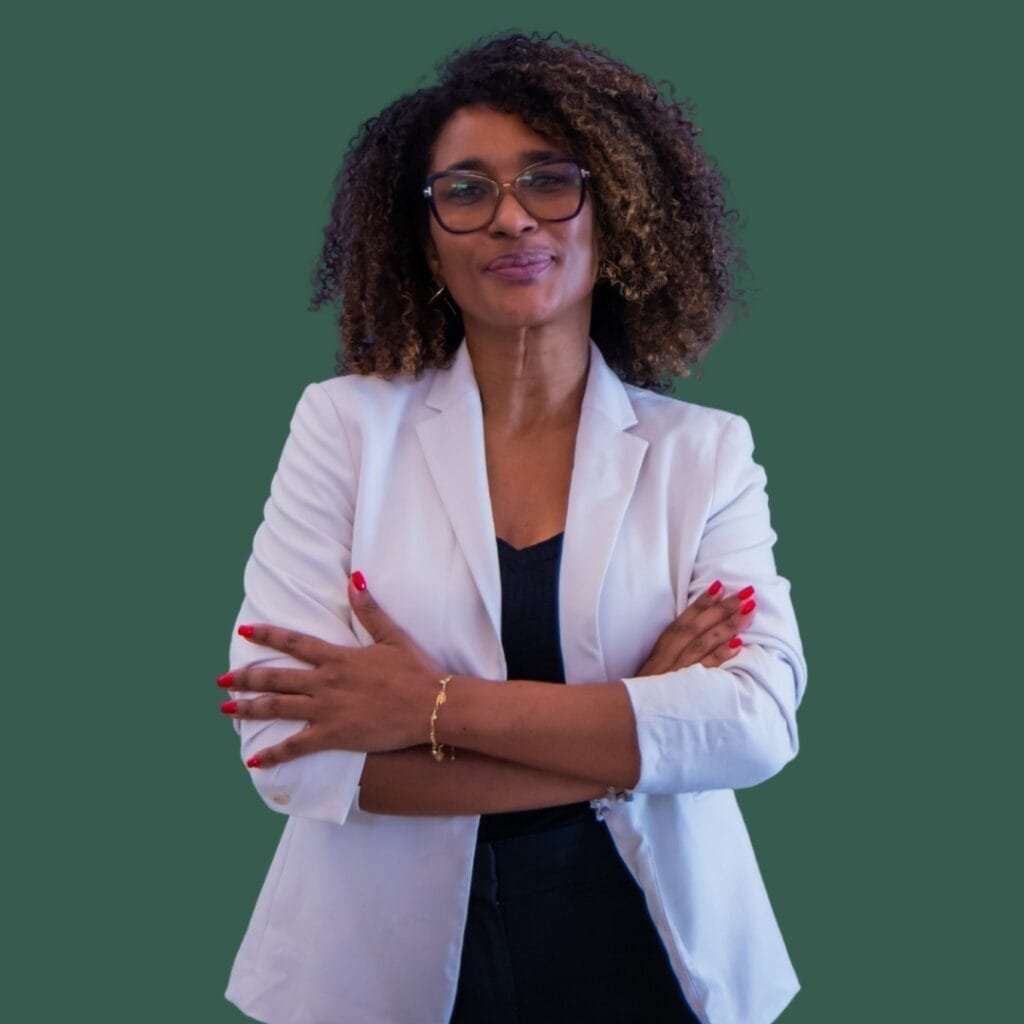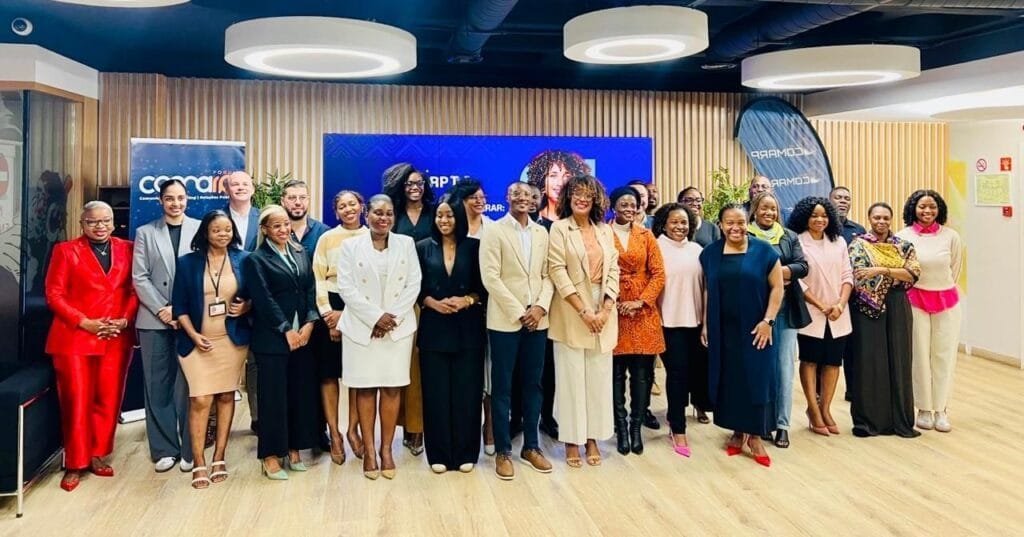Profile Mozambique (PM): Could you briefly tell us about your professional background and how the concept of the Human Leaders Congress in Cabo Verde emerged?
Lúcia Brito (LB): I am Cape Verdean, born on the island of mountains, Santo Antão, and the mother of a prince and a princess, aged 15 and 8 respectively. I bring with me more than 20 years of experience in Management, Marketing, and Business Consulting, across sectors such as Tourism, Food Industry, Cement Industry, Corporate Services, Public Services, and Social Entrepreneurship.
I have always believed that true leadership begins at home, within the family, and then projects itself into society and organizations. The Human Leaders International Congress was born from that conviction, the idea of creating an international space where leadership is thought of and practiced in a humanized, inclusive, and integrative way, with Africa at the center of the global conversation.

Throughout my professional journey, in both national and international contexts, I realized that our organizations lacked a space that united results and people, strategy and purpose. It is within this spirit that HLIC was founded in Cabo Verde: to place humanized leadership at the heart of continental debate and to bring together Lusophone, Anglophone, and Francophone ecosystems, fostering a genuine network of transformation in Africa.
PM: How would you define the role of the Human Leaders International Congress in the African landscape, and what leadership and development niches does it seek to address?
LB: Africa is the youngest continent in the world, 70% of Sub-Saharan Africa’s population is under 30, which makes young talent the greatest lever for transformation.
The Human Leaders International Congress positions itself as a reference platform to reflect and act upon leadership that is people-centered, adapted to Africa’s realities and potential. To that end, we bring together corporate, social, religious, academic, and political leaders in a constructive, inclusive dialogue with tangible impact.
Our objective is to occupy the niche where leadership is reimagined in a humanized way, with Africa as a protagonist in shaping global solutions.
PM: We observe that leadership discussions in Africa have increasingly prioritized topics such as digital transformation and youth empowerment. How does the Human Leaders Congress plan to reflect these trends, and how will it adapt them to local needs?
LB: We place these trends at the very center of the debate, always with a realistic perspective on the African context, youth as the engine of innovation and digitalization as a tool not just for technological progress, but for inclusion.
The Human Leaders International Congress was designed to build bridges among Lusophone, Francophone, and Anglophone countries, fostering replicable, sustainable solutions adapted to our realities. The data is telling: in 2024, only 38% of Africans had internet access, compared to the global average of 68%. The urban-rural divide is the largest in the world (57% vs. 23%). This reinforces the urgency of treating digital inclusion as a leadership priority, with direct impact on talent development, public policy, and business models.
By 2050, more than one-third of the world’s youth will be African. This is a unique opportunity to shape the continent’s future. The HLIC intends to create practical laboratories (in digital skills, data literacy, and responsible AI), policy roundtables, and platforms for sharing concrete solutions. Our commitment is to follow global trends but, above all, to translate them into accessible, effective, and transformative actions for all of Africa.
PM: Which sectors, corporate, academic, or public, do you expect to be most actively involved, and what does this reveal about the interest in transformational leadership?
LB: We expect strong participation from the corporate, academic, and civil society sectors, as we believe they are essential catalysts of practical change and critical thinking. We want these sectors to act not just as participants but as true promoters of transformational leadership committed to real impact.
The public sector, in turn, is indispensable to translating public policy into tangible improvements, ensuring that innovation is inclusive and sustainable. The growing involvement of these sectors reveals that Africa is ready to embrace a more collaborative, conscious, and solutions-oriented leadership.
The corporate and academic sectors have a central role in this process through talent upskilling, applied research, and the promotion of best practices. Meanwhile, the public sector must anchor policies and regulations that encourage innovation and inclusion.
Moreover, the continent’s rapid urbanization poses challenges that demand new forms of leadership. By 2050, Africa’s urban population is expected to double, making the development of joint, sustainable, and locally adapted solutions more urgent than ever.
PM: Regarding Mozambique’s participation, what progress has been made so far in terms of strategic relations?
LB: We have been establishing contacts with institutions, change agents, and leading figures in Mozambique, who have shown great openness and willingness to cooperate. The country emerges as a strategic partner for expanding, at the regional level, the vision of more humanized, inclusive, and transformative leadership.

We maintain active dialogue with institutional and business actors to co-create delegations and contribute to key topics such as youth, digital inclusion, governance, and gender equality. Mozambique’s participation has proven promising, with many partners enthusiastic about joining this journey of transformation.
Mozambique will undoubtedly be one of the pillars of this regional leadership network that the Human Leaders International Congress Cabo Verde 2026 aims to strengthen. The event, scheduled for July 24 – 25, will be a true immersion into leadership and the future, and Mozambique will be represented as an active part of that endeavor.
PM: What concrete outcomes are expected from the Human Leaders Congress in strengthening Mozambican leadership across business, institutional, and social levels?
LB: We aim for the Human Leaders International Congress to contribute tangibly to strengthening Mozambican leadership across business, institutional, and social fronts. Our ambition is to support Mozambique in adopting practical leadership tools, fostering strategic cooperation networks, and creating spaces where emerging leaders can gain international visibility.
We expect to generate concrete impacts in several areas. In capacity building, we promote organizational leadership programs oriented towards results and aligned with humanized values. In networking, we encourage connections between emerging leaders and top executives in the region, focusing on mentorship and experience-sharing.
In digital transformation, we develop initiatives to reduce the usage and skills gap, based on GSMA and ITU indicators, strengthening access to technology, mobile coverage, and digital literacy. Finally, in gender equality, we seek to reinforce the pipeline of women leaders, especially in the business and institutional sectors. Mozambique already stands out regionally, with 39.2% of women in parliament, and HLIC aims to accelerate this representativeness in other spheres of leadership.
Our commitment is to help Mozambique gain greater visibility and confidence, aligning its practices with global standards of excellence while preserving its African identity and promoting people-centered leadership.
PM: What is your medium- and long-term vision for the country? Are there plans for expansion in terms of format, frequency, or presence in regions beyond Cabo Verde?
LB: Our vision is to transform the Human Leaders International Congress into an itinerant platform in Africa, with Cabo Verde as a starting point, but not the sole destination, to promote global dialogues with local impact. In the medium term, we aim to hold thematic events in strategic countries, and in the long term, consolidate a true network of interconnected African leaders.
The model foresees Cabo Verde as the hub, complemented by satellite events in key countries, including Mozambique. As for frequency, the format includes biennial congresses and semi-annual laboratories focused on strategic themes such as digitalization, youth, gender, ESG (Environmental, Social and Governance), education, social innovation, and health.
The expected impact is the creation of a continental community of practice, sustained by clear benchmarks, digital penetration, female participation, and the number of projects incubated. Monitoring will be carried out using reference data from institutions such as the UN, GSMA, and ITU.
PM: Considering the persistent challenges in women’s representation in decision-making spaces, does your organization have specific strategies to promote female leadership?
LB: Yes, we have a firm and structured commitment to gender equity. In Cabo Verde, significant steps have already been taken through the implementation of the Parity Law, which positioned the country among those with the highest female representation in parliament (44.4%). Our goal is to expand this progress beyond the political sector, reaching companies, institutions, and civil society organizations, so that women’s leadership becomes increasingly visible, active, and decisive.
At the Human Leaders International Congress, we implement specific strategies to promote female leadership, including creating mentorship spaces and fostering allyship. We set concrete representativeness targets, ensuring that at least 40% of speakers and panelists are women.
Additionally, we design programs with measurable indicators, focusing on the promotion of women to leadership positions, pay equity, and access to financing, in order to assess the real impact of our initiatives.
In the digital sphere, we recognize that many women entrepreneurs still face barriers such as cost of access and online security issues. For this reason, we are developing partnerships with technology and financial actors to create digital empowerment toolkits with practical solutions that enhance women’s participation in the digital economy, not only in Cabo Verde but also across other African countries.
We firmly believe that transformative leadership will only be possible with women’s equitable presence in all decision-making spaces.
PM: What final message would you like to leave with Profile readers, especially young professionals and emerging leaders in Mozambique, based on your accumulated experience?
LB: The message is simple yet profound: leadership is not about titles, it is about impact.
Every young Mozambican carries within themselves the power to be an agent of transformation, starting by leading themselves, their families, and their communities. The future of Africa will be built by conscious, human leaders who are capable of delivering sustainable and inclusive results.
We have a unique advantage, we are the youngest continent in the world, with a median age of just 19 years. This is our competitive strength, and the time is now.
Invest in digital skills, ethics, empathy, and collaboration. Build bridges between sectors, communities, and countries. Because the future of Africa depends on the courage, vision, and action of its youth and the generations to come.




